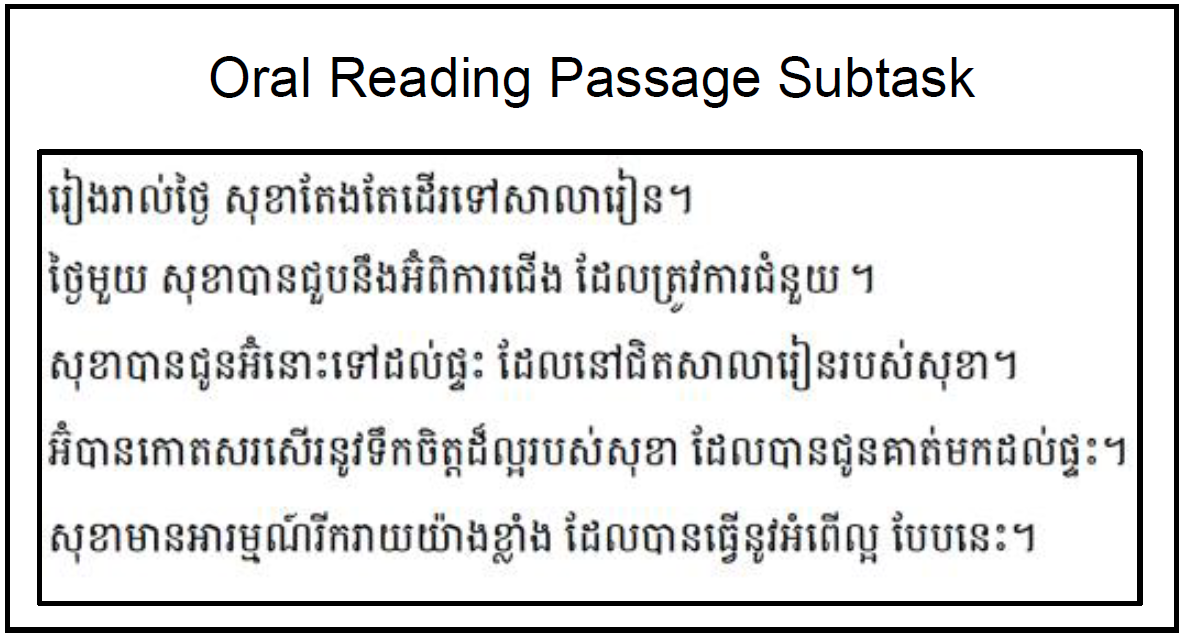Exporting PDF





The oral reading fluency (ORF) subtask measures how quickly and accurately a student can read. It is a core component of EGRA because it brings together lower-level reading skills (such as decoding and familiar word recognition) with how quickly and easily the student can read a given word (called automaticity). Students are given a short, 61-word, written passage on a familiar topic and were asked to read it out loud “quickly but carefully.”
The Extended ORF subtask follows the same approach as the ORF, but the students are given more than 60 seconds to read. In this EGRA, students were given 3 minutes. If the child could not read any of the first seven words in the passage, they were told to discontinue the test (and were given a score of zero words read). The EGRA administrator times the student, making note of any mistakes the student made while reading the words aloud. The score is reported as correct words per minute (cwpm), calculated using the longer duration rather than coming from the first 60 seconds of reading.
Note: exporting will include only filtered data.
"2019, All Children Reading-Cambodia (ACR-Cambodia), Midline Study: Assessment Outcomes," Early Grade Reading Barometer, U.S. Agency for International Development, last modified January 5, 2022, https://earlygradereadingbarometer.org/results/Cambodia/ACR-Cambodia-2019/outcomes.
Copy To Clipboard2019, All Children Reading-Cambodia (ACR-Cambodia), Midline Study: Assessment Outcomes. (n.d.) Early Grade Reading Barometer. https://earlygradereadingbarometer.org/results/Cambodia/ACR-Cambodia-2019/outcomes
Copy To Clipboard